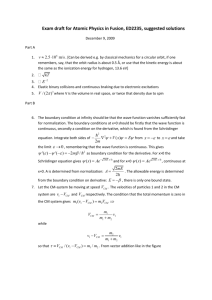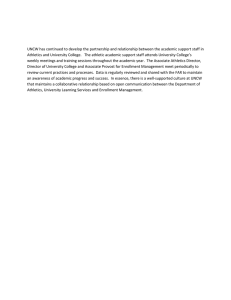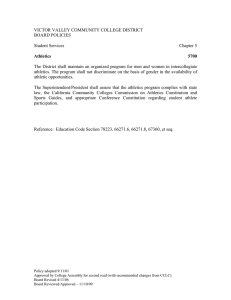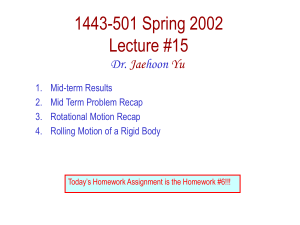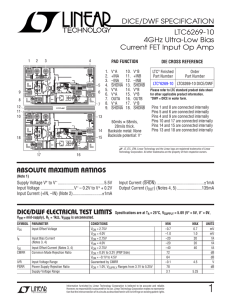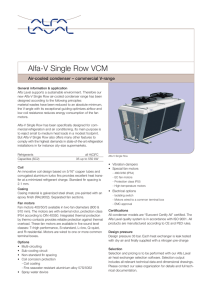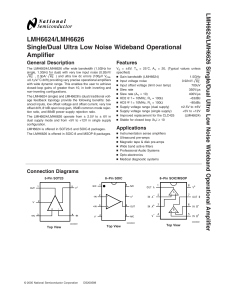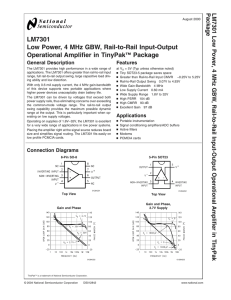Attachment 6. The Budget Committee received reports from the Provost and Vice...
advertisement
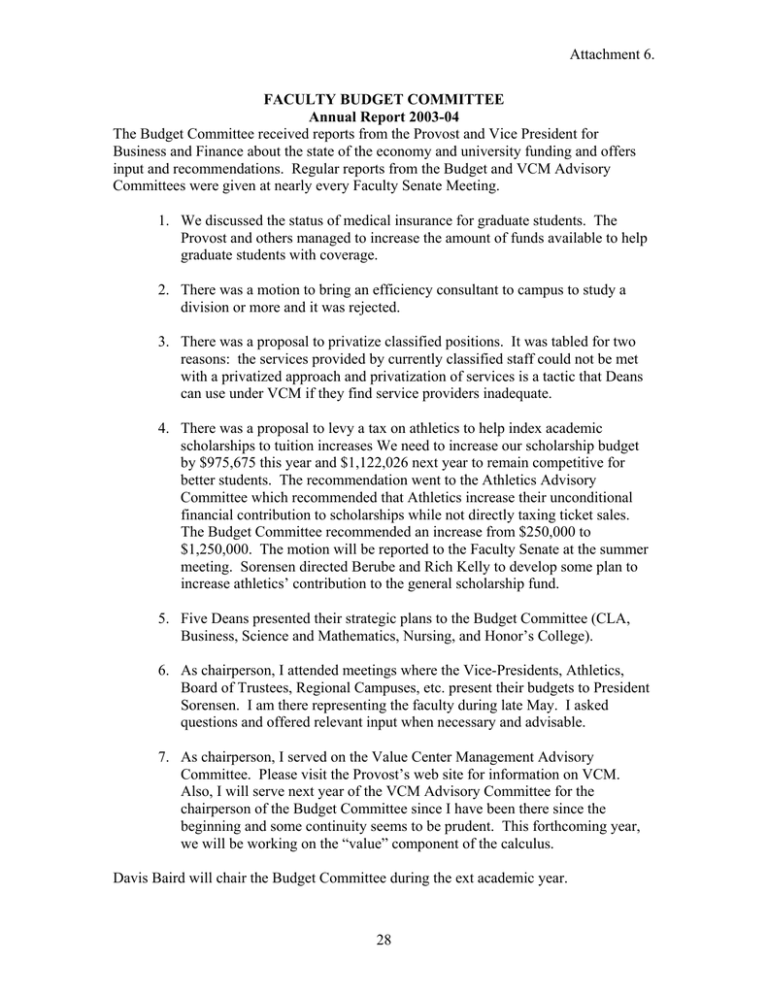
Attachment 6. FACULTY BUDGET COMMITTEE Annual Report 2003-04 The Budget Committee received reports from the Provost and Vice President for Business and Finance about the state of the economy and university funding and offers input and recommendations. Regular reports from the Budget and VCM Advisory Committees were given at nearly every Faculty Senate Meeting. 1. We discussed the status of medical insurance for graduate students. The Provost and others managed to increase the amount of funds available to help graduate students with coverage. 2. There was a motion to bring an efficiency consultant to campus to study a division or more and it was rejected. 3. There was a proposal to privatize classified positions. It was tabled for two reasons: the services provided by currently classified staff could not be met with a privatized approach and privatization of services is a tactic that Deans can use under VCM if they find service providers inadequate. 4. There was a proposal to levy a tax on athletics to help index academic scholarships to tuition increases We need to increase our scholarship budget by $975,675 this year and $1,122,026 next year to remain competitive for better students. The recommendation went to the Athletics Advisory Committee which recommended that Athletics increase their unconditional financial contribution to scholarships while not directly taxing ticket sales. The Budget Committee recommended an increase from $250,000 to $1,250,000. The motion will be reported to the Faculty Senate at the summer meeting. Sorensen directed Berube and Rich Kelly to develop some plan to increase athletics’ contribution to the general scholarship fund. 5. Five Deans presented their strategic plans to the Budget Committee (CLA, Business, Science and Mathematics, Nursing, and Honor’s College). 6. As chairperson, I attended meetings where the Vice-Presidents, Athletics, Board of Trustees, Regional Campuses, etc. present their budgets to President Sorensen. I am there representing the faculty during late May. I asked questions and offered relevant input when necessary and advisable. 7. As chairperson, I served on the Value Center Management Advisory Committee. Please visit the Provost’s web site for information on VCM. Also, I will serve next year of the VCM Advisory Committee for the chairperson of the Budget Committee since I have been there since the beginning and some continuity seems to be prudent. This forthcoming year, we will be working on the “value” component of the calculus. Davis Baird will chair the Budget Committee during the ext academic year. 28 Attachment 6. Some observations1 The University is making a painful transition from a University dependent on state allocations to one that is not. The faculty complaints about salary adjustments continue to be heard, but the University budget cannot solve all the salary related inequities quickly or painlessly. 2 The University is attempting to deal with the TERIing of its senior faculty. Over the next few years, we will experience a rash of retirements. While a senior professor might be easily replaced by a junior hire that may not be the case considering a host of variables including salary compression. 3 We learned that some colleges are more prepared for the transition to VCM accounting than others. For example, the Honor’s College will need to find creative ways to keep the best faculty interested in teaching in the Honor’s College when the calculus seems to favor larger classes within the home unite or college. Nursing is confronting difficulties funding their program and that will not improve under VCM at all. While both the larger colleges Science and Mathematics and Liberal Arts seem to have a handle on VCM, there is much uncertainty associated with the merger. For example, Science and Mathematics have told the department chairs that they will receive back into their budgets a certain percentage of the tuition they generate, but that relationship does not exist in Liberal Arts. 4 In general, all units of the University seem to be dealing with budgets that are stagnant. To cover expenses, units are engaged in a plethora of efficiency improving tactics. Finally, we are facing a tuition increase again through it is evident that there will be some point where we will outstrip the market for students. 29
